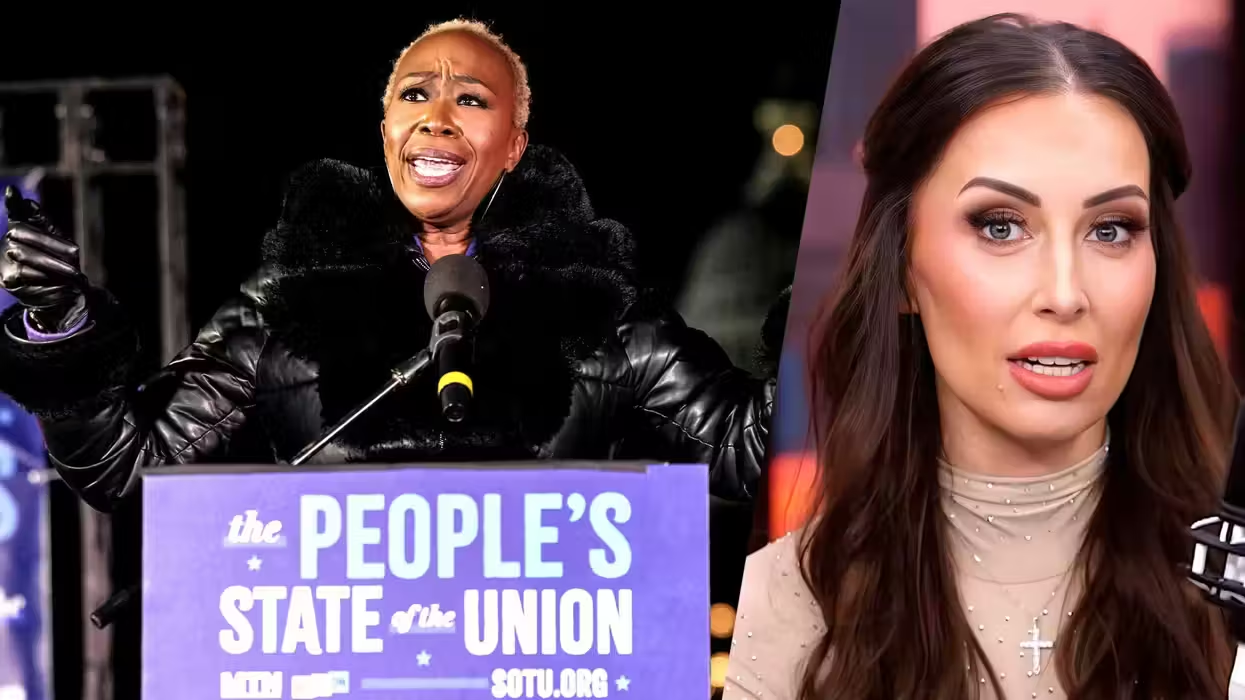
© 2026 Blaze Media LLC. All rights reserved.
Stoll on JFK Part III: Gold, Goldwater, libertarianism and more on anti-Communism
November 29, 2013
In a wide-ranging interview with Blaze Books in connection with his newest title, JFK, Conservative, Ira Stoll provided his insights on JFK's political ideology, religiosity, foreign policy views and a whole host of other topics. Below is the final part of our interview, conducted via email. You can find Part I here and Part II here. The interview has been slightly edited for clarity.
In your book you indicate that JFK took a number of public stances that were fiscally and monetarily conservative. Who were some of the thinkers that influenced his economic philosophy?
Stoll: His father was a successful businessman who was quite concerned about the flow of gold. His Treasury Secretary, Douglas Dillon, was a Wall Street Republican who wanted tax cuts. Kennedy’s friend Phil Graham, the owner and publisher of the Washington Post, was also pushing Kennedy for tax cuts to spur economic growth. I also detect in Kennedy’s speeches the influence of a libertarian writer named Albert Jay Nock, author of a book called Our Enemy, the State and of an introduction to Herbert Spencer’s The Man Versus the State, both of which were on Kennedy’s bookshelf.
How do we reconcile the more leftist items on Kennedy’s agenda such as increased social spending with his ideological principles?
[sharequote align="left"]Increased social spending wasn’t an item on Kennedy’s agenda...in any significant way[/sharequote]
Stoll: Increased social spending wasn’t an item on Kennedy’s agenda, at least not in any significant way that he fought for or achieved while in office. He gave a speech or two in favor of Medicare and for increased aid to education, but liberals within the administration were disappointed that instead of pushing for those things he focused on free trade and the tax cuts. Anyway, one can be for a modest government safety net for the elderly, disabled, and mentally ill, and for efforts to expand opportunity to the young through education, as Kennedy was and as many conservatives are even today, while still being skeptical of or resistant to the excesses of the ever-expanding federal welfare state.
Are there aspects of JFK’s philosophy that libertarians would approve of too?
Stoll: There’s a lot in the book that will probably resonate with libertarians. Kennedy was likely influenced by the libertarian writer Albert Jay Nock. Early in his political career, JFK gave some amazing speeches about the individual versus the state. On January 29, 1950, at Notre Dame, he said, “The ever expanding power of the federal government, the absorption of many of the functions that states and cities once considered to be the responsibilities of their own, must now be a source of concern to all those who believe as did the Irish Patriot, Henry Grattan: ‘Control over local affairs is the essence of liberty.’” And the Inaugural Address line “Ask not what your country can do for you” was a call for self-reliance and an attack on the welfare state. Other parts, like Kennedy’s foreign policy and his stance on some social issues, libertarians might find less attractive.
What has been the reception of your book to date by the left and by the right?
Stoll: It’s too early to tell for sure. There was a surprisingly warm review in the New York Times, which called my book “wonderfully mischievous” and acknowledged that I have a point. Other liberals just do not want to hear that JFK was conservative — the New Yorker called my book “loony” and the Economist ran a dismissive piece by a writer who admitted on Twitter that he had not read the book. There are, alas, plenty of conservatives who don’t want to hear it, either — they already have their minds made up that they don’t like Kennedys, period. Open-minded people of a variety of political outlooks, though, who do bother to buy and read the book have been impressed by the research and won over by the arguments.
To what can we attribute JFK’s staunch anti-Communism?
Stoll: I depict it in the book as essentially religious. He saw the Cold War as, as he put it in a speech in the 1960 campaign, “a struggle for supremacy between two conflicting ideologies; [sharequote align="right"]He saw the Cold War as [a struggle between] freedom under God versus ruthless, Godless tyranny[/sharequote].” In a 1955 speech, he spoke of the Cold War as “the battle for the preservation of Christian civilization.” There’s a lot of evidence given in the book that this was really what Kennedy thought — it wasn’t just rhetoric. Of course, anticommunism was part of a broad-bipartisan consensus in America at the time that included most “Cold War liberals.” But Kennedy went well beyond that.
Was JFK’s anti-Communism in line with most of his Democratic peers?
Stoll: It’s true that there was a broad anti-communist consensus in American politics at the time. But Kennedy often was so anticommunist that he broke with his Democratic and even liberal Republican colleagues to support hard-line anticommunist measures. A couple of examples that I give in my book are a vote in 1950, where Kennedy voted to override Democratic President Harry Truman’s veto of the Internal Security Act, and another vote in 1953, where Kennedy joined Joseph McCarthy and Barry Goldwater in voting to cut U.S. aid to countries that traded with Communist China. The Eisenhower-Nixon administration and Senators Prescott Bush of Connecticut, Hubert Humphrey of Minnesota, Albert Gore Sr. of Tennessee, Lyndon Johnson of Texas, and Leverett Saltonstall of Massachusetts all were on the other side of that China vote. Kennedy was also sharply critical of his fellow Democrat, President Truman, for losing China to the communists.
[sharequote align="center"]Kennedy often was so anticommunist that he broke with his Democratic and...liberal [GOP] colleagues[/sharequote]
In your book you document multiple instances in which JFK voted against bills championed by liberal Senators such as Albert Gore Sr. and Hubert Humphrey. Does the evidence suggest that these were politically motivated votes, or based on genuine ideological differences?
Stoll: It’s possible it’s a false dichotomy. I think the evidence shows that Kennedy was a consistent, genuine, hard-line anti-communist, which also was a politically popular stance at the time, because a lot of voters were also consistent, genuine, hard-line anti-communists. If anything, the moments where Kennedy can be fairly accused of political motivation came when he slightly eased his hard line in pursuit of political support from liberals who were skeptical of him. One example of that seems to have been when, approaching the 1960 election, he tried to remove a loyalty oath requirement for professors getting government research funding. But even on that one he was pretty hard line — his argument was that you couldn’t trust a known Communist not to lie in a loyalty oath, anyway, so he reasoned that requiring such an oath was useless.
How do we reconcile the liberal lionization of JFK with the facts in your book?
Stoll: Ask them! I think it’s hard to reconcile, and they only do it by significantly distorting the facts. As I write in my book, after Kennedy’s death some of his more liberal aides wrote books in which they altered the chronology of events and edited certain lines out of Kennedy’s speeches, leaving readers with the false impression that Kennedy was more liberal than he actually was.
[sharequote align="center"]Kennedy won in 1960 by setting the issues — “economic growth, military strength, American prestige."[/sharequote]
What would you say to a free-marketeer like Henry Hazlitt, a contemporary of Kennedy who was critical of most all of Kennedy’s policies?
Stoll: Hazlitt, like many Republicans at the time, opposed Kennedy’s tax cuts unless they were accompanied by spending cuts of the same magnitude. Barry Goldwater, who had taken a position similar to Hazlitt, later conceded that Kennedy had been right, and that he, Goldwater, had been wrong. I quote Hazlitt in my book as saying that Kennedy won in 1960 by setting the issues — “economic growth, military strength, American prestige. He succeeded in keeping Nixon on the defensive.” Hazlitt was right about that. On a big picture level, I think Hazlitt was disappointed that Kennedy wasn’t shrinking the size of a federal government that in 1962 looked vast to Hazlitt. From the perspective of 2013, the presidents after Kennedy increased the size of government far more than Kennedy did, and the government now is much bigger than it was in Kennedy’s day, so Kennedy’s relative restraint looks pretty good in the long retrospective view of history. So I guess I would say to Hazlitt, if you think Kennedy is bad, wait until you see what else is coming.
Want to leave a tip?
We answer to you. Help keep our content free of advertisers and big tech censorship by leaving a tip today.
Want to join the conversation?
Already a subscriber?
Ben Weingarten is a writer, commentator, and editor at large at RealClearInvestigations. He is a senior contributor at the Federalist and writes columns for Newsweek and the Epoch Times.
Ben Weingarten
Ben Weingarten is a writer, commentator, and editor at large at RealClearInvestigations. He is a senior contributor at the Federalist and writes columns for Newsweek and the Epoch Times.
more stories
Sign up for the Blaze newsletter
By signing up, you agree to our Privacy Policy and Terms of Use, and agree to receive content that may sometimes include advertisements. You may opt out at any time.
Related Content
© 2026 Blaze Media LLC. All rights reserved.
Get the stories that matter most delivered directly to your inbox.
By signing up, you agree to our Privacy Policy and Terms of Use, and agree to receive content that may sometimes include advertisements. You may opt out at any time.






